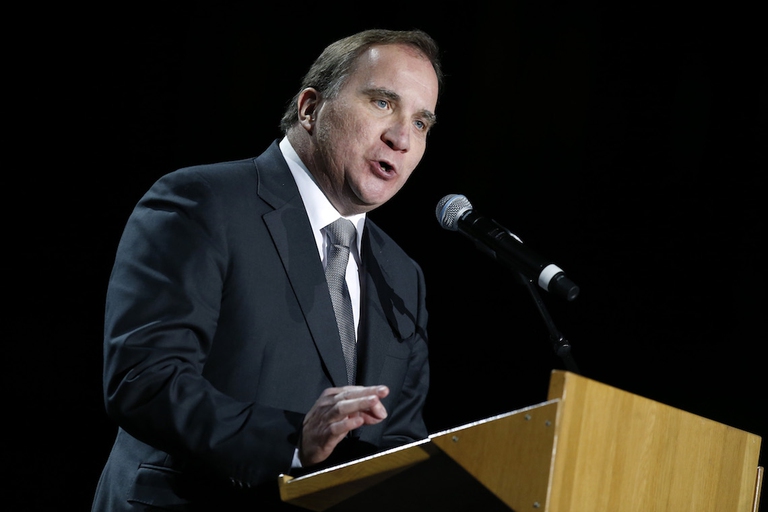
South African court dismisses a major lawsuit by 140,000 Zambian women and children against Anglo American for Kabwe lead poisoning. A setback for affected communities enduring the lasting impact of lead contamination.
Il governo della Svezia ha annunciato un piano per azzerare le emissioni nette di gas ad effetto serra. “Compensiamo i passi indietro di Donald Trump”.
Just take Donald Trump’s announcements on climate and energy and imagine the opposite. Your mind will travel to Sweden, where its Prime Minister decided to react to the choices made by the new US administration.
Swedish Prime Minister Stefan Lofven declared that “the position we hear from the new administration is worrying”. Sweden has announced a new plan for its ecological transition in order to fulfil the Paris Agreement. Crucially, the Scandinavian country has pledged to cut all greenhouse gas emissions by 2045. Also, it committed to cut emissions from the transport industry by 70 per cent by 2030. Climate Minister Isabella Lovin said that this choice should be shared by all European countries in order to further commit in the fight against climate change, now that the United States are stepping back.
The new law will enter into force on 1 January 2018 and will also be bindingfor Sweden’s future governments, as it was approved by 7 out of the 8 political parties in the Parliament. “Sweden wanted to set an example at a time when climate sceptics are really gaining power in the world again,” said Lovin. She also felt encouraged by pledges by China and India: “Beijing is investing billions and billions of dollars in solar. It’s a game changer,” but “those that are still wanting to invest in fossil fuels will be ultimately the losers.”
Many countries are on the same wavelength with Sweden. Indeed, Costa Rica meets its energy needs mainly with hydroelectric, geothermal, solar and wind power. Nicaragua produces 55 per cent of its energy from renewable sources and aims to reach 90 per cent by 2020. Big industrialised countries could reach 100% renewable energy, as recently confirmed by the French Agency for the Environment and Energy Management (ADEME). It’s thus not about technical feasibility but political will.
Siamo anche su WhatsApp. Segui il canale ufficiale LifeGate per restare aggiornata, aggiornato sulle ultime notizie e sulle nostre attività.
![]()
Quest'opera è distribuita con Licenza Creative Commons Attribuzione - Non commerciale - Non opere derivate 4.0 Internazionale.
South African court dismisses a major lawsuit by 140,000 Zambian women and children against Anglo American for Kabwe lead poisoning. A setback for affected communities enduring the lasting impact of lead contamination.
Controversial African land deals by Blue Carbon face skepticism regarding their environmental impact and doubts about the company’s track record, raising concerns about potential divergence from authentic environmental initiatives.
Majuli, the world’s largest river island in Assam State of India is quickly disappearing into the Brahmaputra river due to soil erosion.
Food imported into the EU aren’t subject to the same production standards as European food. The introduction of mirror clauses would ensure reciprocity while also encouraging the agroecological transition.
Sikkim is a hilly State in north-east India. Surrounded by villages that attracts outsiders thanks to its soothing calmness and natural beauty.
Sikkim, one of the smallest states in India has made it mandatory for new mothers to plant saplings and protect them like their children to save environment
Chilekwa Mumba is a Zambian is an environmental activist and community organizer. He is known for having organized a successful lawsuit against UK-based mining companies.
What led to the Fukushima water release, and what are the impacts of one of the most controversial decisions of the post-nuclear disaster clean-up effort?
Nzambi Matee is a Kenyan engineer who produces sustainable low-cost construction materials made of recycled plastic waste with the aim of addressing plastic pollution and affordable housing.








